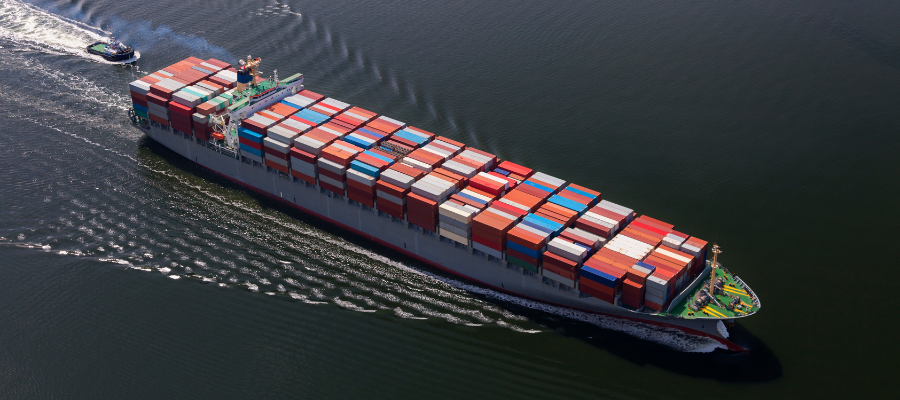🕒 Article read time: 2 minutes
Will an overcapacity of container ships depress ocean freight rates?

More than 900 new container ships are scheduled to be delivered between now and 2027, according to news agency Bloomberg. This is estimated to increase the existing capacity by around a quarter.
This has led some analysts to conclude that supply is likely to exceed the expected demand, leading to a flattening of ocean freight rates, unless the shipping lines decide to reduce their capacity.
OVERCAPACITY MARKS SEA CHANGE
This overcapacity issue marks an abrupt change from the shortages that were occurring just 12 months ago. As well as a decline in spot container rates, the Xenata Shipping Index for January dropped by a record 13.3% – the largest ever month-on-month decline and the fifth month in a row of falling prices on the index.
While this may be welcome news for shippers, the outlook for carriers looks markedly less positive.
“Global demand has fallen away, congestion has eased, equipment is available, and the macro-economic and geopolitical situations are, to say the least, complex,” said Xeneta CEO Patrik Berglund. “As a result of those market fundamentals, spot prices have collapsed, spiralling downwards since late summer 2022. However, the carriers have managed to protect long-term rates from the worst impacts until now.”
MARKET TURNS IN SHIPPERS’ FAVOUR
Many of the contracts negotiated last year are coming to an end or have already expired. This new market reality has not been lost on shippers, many of whom have been negotiating hard with carriers for significant rate reductions.
“What we’re seeing now is the effect of that as new contracts enter validity,” Berglund said, “And for the carriers, worse is set to come.”
Last May saw the XSI’s largest monthly increase in a ‘super-hot’ market, with a climb of 30.1%. US import rates soared by almost two thirds (65%). Contracts negotiated in May 2022 are set to expire at the end of April 2023, so falls in the coming months may set new records.
“January has been difficult for the carriers, and there’s a real danger of some horrific times on the horizon,” Berglund said, “With the market looking so depressed, overcapacity seems certain to loom large throughout the year. The only hope of protecting rates is removing capacity at a pace that mirrors demand, or rather the lack of it. It’s been a golden age for carriers since the pandemic wreaked havoc on global supply chains, but the tide has well and truly turned.”
James Hookham, Secretary General, Global Shippers' Forum, said: “The costs of shipping containers around the world are returning to levels last seen before the pandemic. This is the product of a sharp contraction in consumer demand for goods in western economies and manufacturing output in China. Both are likely to rebound later this year and will coincide with the deployment of large numbers of newly built ships ordered at peak rates. Offsetting this will be the removal of some vintage vessels as new IMO energy efficiency requirements take their toll on the existing fleet, plus whatever shipowners decide to scrap, lay-up or slow-down to manage capacity. Shippers will welcome the reversion to historic price levels but will remain wary of the responses of shipping lines to these multiple factors affecting deployed capacity, given the misery inflicted over on their supply chains over the past three years. Belief that the market is returning to the 'Dog Days' of the 2010s is probably premature.”
Logistics UK’s Head of Trade and Devolved Policy, Nichola Mallon, who is also Secretary to the business group’s Shippers’ Council, said: “The market for ocean freight appears to be performing an abrupt about turn, with the pendulum swinging away from a carriers’ market and towards a more favourable negotiating position for shippers renewing their contracts. We will seek feedback and engagement from our Shippers’ Council members and continue to monitor the situation.”
*www.logistics.org.uk/water
Published On: 09/02/2023 16:00:03

Comments Section
If you are a Logistics UK member login to add comments.